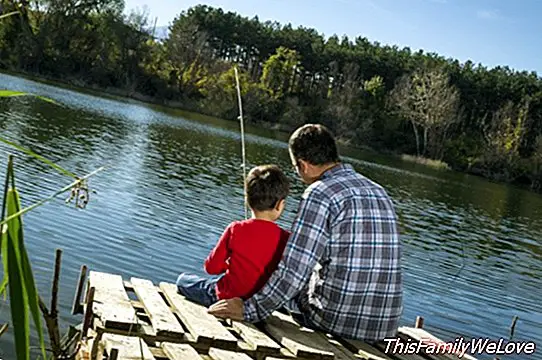The best ages to educate in values

Between the six and twelve years - the maturity of childhood -, children have a natural disposition to develop an intense activity, being the optimal period to educate intellectual and behavioral habits, which will forge their future adult personality. It is the well-known "golden age of virtues", which well focused will avoid much of the problems in adolescence.
A certain age to teach each one of values and virtues
The sensitive periods of children from 3 to 12 years old and refer to behavior and character, make them more receptive to learning with less effort. For this reason, up to twelve years we must take advantage of these good provisions to perform good acts.
Teach values and virtues by ages
1. SINCERITY (3 to 9 years)
After seven years, they live as a consequence of justice: they know that they must tell the truth without having received special classes. When they reach the use of reason, they begin to understand the moral value of the truth and are able to strive to live the sincerity, although sometimes it costs them.
They tend to be sincere, but when that habit is not encouraged, they can discover the great advantages of knowing how to lie.
2. STUDY (7 to 12 years)
Eagerness to learn and tendency to curiosity; They like to stand out, excel and are able to fight to be the best. When a child of seven to twelve years does not study, we must think that there is a problem and we must discover it as soon as possible.
3. GENEROSITY (7 to 11 years)
At these ages, children experience the impulse to be generous, provide services and help. It is the opportune moment to develop three virtues: generosity, industriousness and strength. The natural sense of justice, the openness towards parents and the tendency to obey, will help to consolidate generosity; rebellions may exist but they will be short and soon forgotten. At the age of seven, reason is beginning to work and children are awakened to a natural tendency to help, to make orders, to give themselves; but it is necessary to channel them, guide them and make them discover the need to be generous and the joy that is felt afterwards.
4. STRENGTH AND CHARACTER (7 to 12 years)
We must help the children acquire very important skills to be able to face life: the will to fight and the capacity to sacrifice. To do this, you have to strive daily and continuously, as a training, in that multitude of small details that suppose a due date.
Advice for parents on education in values and virtues
- Children overprotected and spoiled, who do not know how to live through temperance and are filled with all their whims, end up becoming adults without will, unable to achieve their goals that are proposed in their future life.
- Virtue is not acquired by mechanical repetition of acts, it is only achieved when they are conscious and voluntary, with freedom. We must help him to think so that it is the son himself who makes his decisions (virtue), instead of just telling him what he must do (obedience).
- It's good that parents book an afternoon to think calmly about each of the children, reflect on the strengths and weaknesses, where it is most important to insist, etc.
- Any activity can be formative. Playing a board game, for example, can be educational if the rules are respected, if generosity is lived, if the opposite is respected ...
- Our efforts may not seem rewarding in the short term; It does not matter: if we work with perseverance we will pick up the first fruits of our labor when adolescence arrives.
- At these ages, children feel passionate about small challenges, especially if they involve some effort. It is usually one of the most appropriate ways to motivate them, appealing to their capacity for self-improvement.
A good way to educate in virtues is not to save the children reasonable efforts: to have orders at home, to make the bed before going to school, to go out in the street with clean shoes, to pick up the table after dinner, to lower the garbage, to force oneself to keep a schedule, to keep silent when the brothers study, to smile when their head hurts, etc.
Maria Lucea
Advice: José Manuel Mañú. Teacher.




